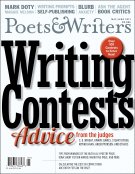As the Internet continues to disgorge an ever-flowing river of reviews, essays, and articles about literature, deciding where to look for intellectually stimulating content can sometimes feel like wading through a massive slush pile. And while a number of trusted arts and culture websites produce a good deal of reliable content, finding an engaging read amid a sea of click bait and 140-character links can often be overwhelming. But the hunt for serious discourse about books became a little easier with the recent launch of Literary Hub (lithub.com), a joint endeavor between independent publisher Grove Atlantic and digital publisher Electric Literature. Founder Morgan Entrekin, president and publisher of Grove Atlantic, says he long desired to create a home on the web for lovers of literature. “It’s this problem of discoverability—it’s a dreadful word—but we’re all struggling with the idea that we can produce this stuff, but how can we bring people to it?” he says. “Now, if you’re interested in literary culture, there’s one place you can go to for your news and information.”
The site curates literature-related content from all corners of the web, while also offering commissioned essays about books and the writing life, as well as excerpts from newly released and forthcoming books. “It’s a site with the best, smartest writing about the best, smartest writing,” explains editor in chief Jonny Diamond.
While other websites round up and produce daily content on literature, Literary Hub distinguishes itself through its broad network of partners. Entrekin has been busy signing those partners—including imprints of all five major trade publishers, independent and university presses, literary magazines, bookstores, literary nonprofits, even college English and creative writing departments—whose job is to submit content and promote the site on social media. When the venture was announced in February, sixty-five such partners had agreed to participate; Entrekin hopes to grow that number to well over a hundred. Partners so far include indie publishers Graywolf Press, McSweeney’s, and Melville House; literary publications AGNI, n+1, the Paris Review, and Poetry magazine; and the nonprofit arts organization PEN American Center.
Entrekin also enlisted help in creating the website. Rather than hiring a traditional web developer to build it, he looked to partner with an existing site that aligned with his mission. Electric Literature, which was established as an online magazine in 2009 and attracted 2.9 million readers last year, seemed the perfect fit. Editorial director Halimah Marcus and founder and chairman Andy Hunter agreed to partner with Entrekin; the website’s staff built Literary Hub and will help keep it running. Grove Atlantic has committed to funding the site for its first three years, and while he isn’t turning away any ads, Entrekin isn’t soliciting them either.
To oversee the content, Hunter hired Diamond, the former editor of the L Magazine and Brooklyn Magazine, as Literary Hub’s editor in chief, and John Freeman, the former editor of Granta, to be the executive editor. Writer and critic Roxane Gay, fiction writer Alexander Chee, and poets Rebecca Wolff and Adam Fitzgerald serve as contributing editors, and rounding out the masthead are about a dozen correspondents from across the country, reporting on the literary scene beyond New York City.
Each day the website’s editorial team aims to push out a significant amount of content, including a book excerpt, contributed by one of Literary Hub’s publishing partners; a critical or personal essay about books and literary culture; an e-mail roundup of interesting reading about the literary world; and quotations and other archival material aimed at drawing clicks on social media. The editors accept pitches from writers, though Diamond says a traditional book review isn’t enough to merit inclusion. “I’m looking for longer essays that discuss multiple titles, critical pieces that engage with ideas, pieces that talk about trends in the literary conversation, pieces that can take stronger positions and become conversation starters,” he says.
Hunter acknowledges that it can take years to build a loyal audience. “The average person only checks out eight websites regularly,” he says. “To become one of those websites is a very tall order. There’s a lot of tricks, with search-engine optimization and shareable headlines, but ultimately what works in the long run is putting out great content and giving people material they love and relate to—and feel at home in.”
Jonathan Vatner is a fiction writer in Brooklyn, New York. He is the staff writer for Hue, the magazine of the Fashion Institute of Technology.








